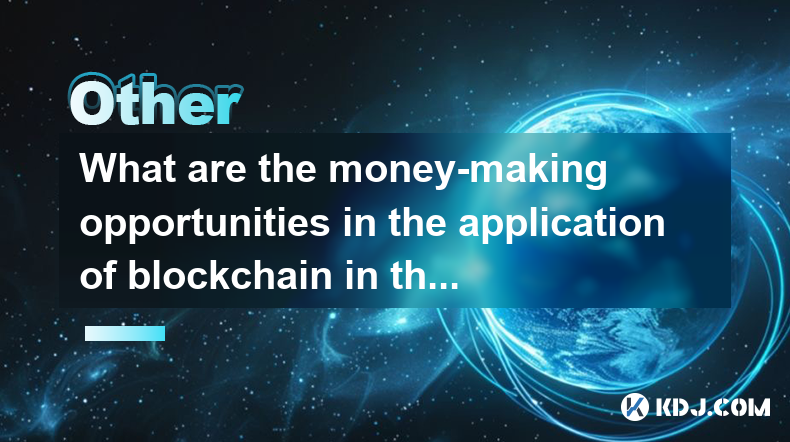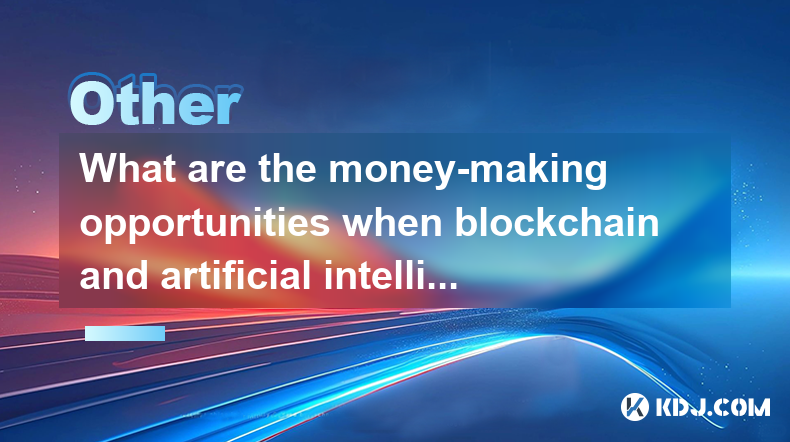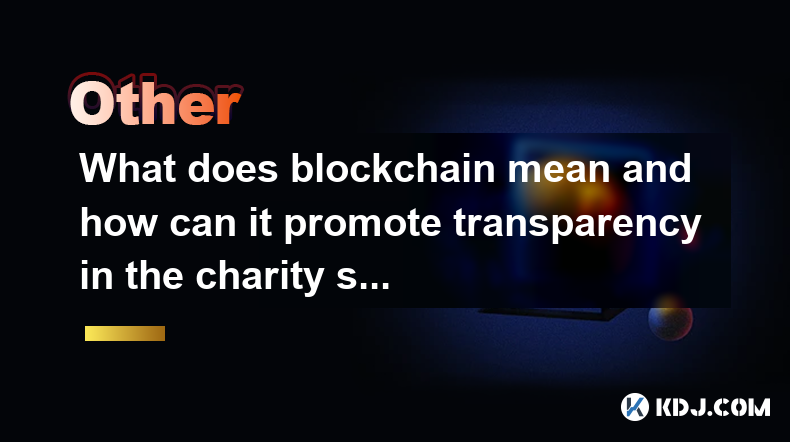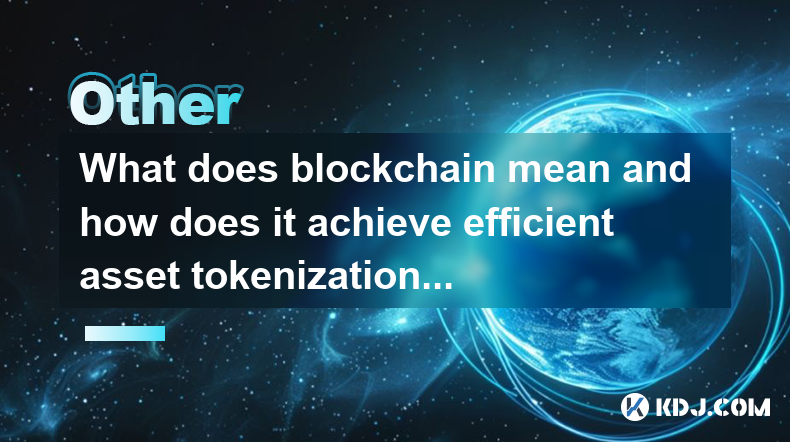-
 Bitcoin
Bitcoin $83,038.0069
-0.47% -
 Ethereum
Ethereum $1,797.3439
-1.89% -
 Tether USDt
Tether USDt $0.9997
-0.03% -
 XRP
XRP $2.0631
-0.32% -
 BNB
BNB $593.8720
-2.40% -
 USDC
USDC $1.0000
-0.01% -
 Solana
Solana $115.8553
-3.30% -
 Dogecoin
Dogecoin $0.1635
-1.87% -
 Cardano
Cardano $0.6517
-0.23% -
 TRON
TRON $0.2382
0.50% -
 UNUS SED LEO
UNUS SED LEO $9.5907
1.95% -
 Toncoin
Toncoin $3.5320
-6.97% -
 Chainlink
Chainlink $12.7780
-3.04% -
 Stellar
Stellar $0.2599
-1.41% -
 Avalanche
Avalanche $18.2060
-3.24% -
 Shiba Inu
Shiba Inu $0.0...01214
-1.86% -
 Sui
Sui $2.1936
-8.27% -
 Hedera
Hedera $0.1622
-1.58% -
 Litecoin
Litecoin $83.5547
-0.20% -
 Polkadot
Polkadot $4.0164
-0.59% -
 MANTRA
MANTRA $6.3522
0.04% -
 Bitcoin Cash
Bitcoin Cash $306.7656
0.80% -
 Bitget Token
Bitget Token $4.4830
-1.58% -
 Dai
Dai $1.0000
0.00% -
 Ethena USDe
Ethena USDe $0.9995
-0.04% -
 Monero
Monero $217.5723
0.24% -
 Hyperliquid
Hyperliquid $11.6936
-6.46% -
 Pi
Pi $0.5508
-14.89% -
 Uniswap
Uniswap $5.8803
-2.39% -
 Aptos
Aptos $5.0009
-5.37%
What are the maintenance costs of blockchain system development?
Blockchain system maintenance costs include technical upkeep, security updates, infrastructure, and personnel, influenced by size, complexity, and regulatory demands.
Apr 03, 2025 at 06:07 pm

The maintenance costs of blockchain system development are multifaceted and depend on various factors. These costs can include technical maintenance, security updates, infrastructure expenses, and personnel costs. Understanding these elements is crucial for anyone planning to develop or maintain a blockchain system.
Technical Maintenance
Technical maintenance is a significant component of the overall maintenance costs. This involves regular updates to the blockchain software to ensure it remains compatible with other systems and to fix any bugs that may arise.
- Software Updates: Regular updates are necessary to keep the system running smoothly. These updates can be minor patches or major overhauls, depending on the issues identified.
- Bug Fixes: Identifying and resolving bugs is an ongoing process. This requires a dedicated team to monitor the system and implement fixes as needed.
- Compatibility: Ensuring the blockchain remains compatible with other systems and software is crucial. This might involve updating APIs or other interfaces.
Security Updates
Security is paramount in blockchain systems, and maintaining high security standards incurs significant costs.
- Vulnerability Assessments: Regular assessments are necessary to identify potential security weaknesses. This involves hiring security experts to conduct thorough reviews.
- Patch Management: Once vulnerabilities are identified, patches must be developed and deployed promptly to mitigate risks.
- Security Audits: Periodic audits by external firms can help ensure that the system remains secure. These audits can be costly but are essential for maintaining trust in the system.
Infrastructure Expenses
The infrastructure required to run a blockchain system can be expensive. This includes servers, data centers, and other hardware necessary to maintain the network.
- Server Costs: High-performance servers are needed to handle the computational load of a blockchain network. These servers can be costly to purchase and maintain.
- Data Centers: Depending on the scale of the blockchain, data centers may be required to house the necessary hardware. This involves leasing space and managing the facilities.
- Bandwidth and Connectivity: Ensuring high-speed connectivity is essential for the smooth operation of a blockchain. This can lead to significant ongoing costs.
Personnel Costs
Maintaining a blockchain system requires a team of skilled professionals, which can be a major expense.
- Developers: A team of developers is needed to handle software updates, bug fixes, and other technical maintenance tasks. These professionals often command high salaries.
- Security Experts: Security experts are essential for conducting vulnerability assessments and managing patch deployments. Their expertise comes at a premium.
- System Administrators: These professionals manage the infrastructure and ensure that all systems are running smoothly. Their role is critical to the overall maintenance of the blockchain.
Additional Costs
There are other costs associated with blockchain system maintenance that may not fall neatly into the above categories.
- Compliance and Legal Fees: Ensuring compliance with relevant regulations can involve significant legal fees. This is particularly important for blockchain systems that handle financial transactions.
- User Support: Providing support to users of the blockchain system can be costly. This might involve setting up a helpdesk or hiring customer service representatives.
- Marketing and Community Management: Maintaining a strong community around the blockchain can help ensure its long-term success. This involves marketing efforts and community management, which can be expensive.
Factors Affecting Maintenance Costs
Several factors can influence the maintenance costs of a blockchain system. Understanding these can help in planning and budgeting for maintenance.
- Size and Complexity: Larger and more complex blockchain systems will generally have higher maintenance costs. This is due to the increased number of components that need to be maintained.
- Security Requirements: Systems with higher security requirements will incur higher costs due to the need for more frequent security audits and updates.
- Scalability: As a blockchain system grows, its maintenance costs can increase. This is due to the need for more infrastructure and personnel to handle the increased load.
- Regulatory Environment: The regulatory environment in which the blockchain operates can also affect maintenance costs. Stricter regulations may require more compliance efforts, which can be costly.
Strategies to Manage Maintenance Costs
There are several strategies that can be employed to manage and potentially reduce the maintenance costs of a blockchain system.
- Outsourcing: Some maintenance tasks can be outsourced to third-party firms. This can help reduce costs, particularly if the firm specializes in blockchain maintenance.
- Automation: Automating certain maintenance tasks can help reduce the need for personnel and lower costs. This might involve using scripts to handle routine updates and monitoring.
- Open Source Solutions: Utilizing open-source software can help reduce costs. Many open-source blockchain platforms have active communities that contribute to maintenance efforts.
- Regular Reviews: Conducting regular reviews of maintenance processes can help identify areas where costs can be reduced. This might involve renegotiating contracts with service providers or finding more cost-effective solutions.
Case Studies
Examining case studies of existing blockchain systems can provide valuable insights into the maintenance costs involved.
- Bitcoin: As one of the most well-known blockchains, Bitcoin's maintenance costs are significant. These include the costs of running nodes, conducting security audits, and managing the network. The decentralized nature of Bitcoin means that these costs are spread across many participants.
- Ethereum: Ethereum's maintenance costs are also high, given its complexity and the number of applications built on its platform. Regular updates and security patches are necessary to keep the system running smoothly.
- Ripple: Ripple's blockchain system, used primarily for financial transactions, has high maintenance costs due to the need for compliance with financial regulations. This involves regular audits and legal fees.
Future Trends
The future of blockchain maintenance costs is likely to be influenced by several trends.
- Increased Automation: As automation technologies improve, more maintenance tasks can be automated, potentially reducing costs.
- Decentralized Maintenance: The trend towards decentralized systems may lead to more distributed maintenance efforts, spreading costs across a larger number of participants.
- Improved Security Technologies: Advances in security technologies could reduce the need for frequent security updates and audits, lowering maintenance costs.
- Regulatory Changes: Changes in the regulatory environment could impact maintenance costs, either by increasing them due to stricter compliance requirements or by reducing them through more favorable regulations.
Common Questions
Q: What are the main components of blockchain system maintenance costs?
A: The main components include technical maintenance, security updates, infrastructure expenses, and personnel costs. Each of these areas involves specific tasks and expenses that contribute to the overall maintenance costs.
Q: How can the size and complexity of a blockchain system affect its maintenance costs?
A: Larger and more complex systems require more resources for maintenance. This includes more personnel to handle updates and bug fixes, more infrastructure to support the system, and more frequent security audits to ensure the system remains secure.
Q: What strategies can be used to manage and reduce blockchain maintenance costs?
A: Strategies include outsourcing certain tasks, automating routine maintenance, using open-source solutions, and conducting regular reviews to identify cost-saving opportunities. Each of these approaches can help manage and potentially reduce the overall maintenance costs.
Q: How do regulatory environments impact blockchain maintenance costs?
A: Stricter regulatory environments can increase maintenance costs due to the need for more compliance efforts. This might involve hiring legal experts, conducting more frequent audits, and implementing additional security measures to meet regulatory requirements.
Q: Can you provide examples of blockchain systems and their associated maintenance costs?
A: Bitcoin, Ethereum, and Ripple are examples of blockchain systems with significant maintenance costs. Bitcoin's costs are spread across many participants due to its decentralized nature. Ethereum's costs are high due to its complexity and the number of applications it supports. Ripple's costs are influenced by the need for compliance with financial regulations.
Q: What future trends might impact blockchain maintenance costs?
A: Future trends include increased automation, decentralized maintenance efforts, improved security technologies, and changes in regulatory environments. Each of these trends could potentially influence the costs associated with maintaining blockchain systems.
Disclaimer:info@kdj.com
The information provided is not trading advice. kdj.com does not assume any responsibility for any investments made based on the information provided in this article. Cryptocurrencies are highly volatile and it is highly recommended that you invest with caution after thorough research!
If you believe that the content used on this website infringes your copyright, please contact us immediately (info@kdj.com) and we will delete it promptly.
- Ethereum (ETH) Continues to Underperform in the Broader Cryptocurrency Market
- 2025-04-04 13:10:11
- BlockDAG Introduces a Permissionless Model—Anyone Can Join the Network, Test Features, Build Smart Contracts, or Mine
- 2025-04-04 13:10:11
- BlockDAG Raises $5M in 48 Hours Post-Keynote 3! Bittensor Sees 4x Gains While BNB Sees Slight Rise
- 2025-04-04 13:05:12
- The Rise of Sweepstakes Casinos: A New Era of Digital Entertainment
- 2025-04-04 13:05:12
- Bitcoin (BTC) price remains steady despite President Trump's tariff moves
- 2025-04-04 13:00:12
- Daily Crypto Signals: Bitcoin and XRP React to Trump’s Tariffs and Mixed Sentiment
- 2025-04-04 13:00:12
Related knowledge

What are the future development trends of blockchain game development?
Apr 03,2025 at 05:00am
Blockchain technology has revolutionized various industries, and gaming is no exception. As we look to the future, several trends are set to shape the development of blockchain games. These trends not only promise to enhance the gaming experience but also to integrate blockchain technology more seamlessly into the gaming ecosystem. Let's explore these t...

What are the maintenance costs of blockchain system development?
Apr 03,2025 at 06:07pm
The maintenance costs of blockchain system development are multifaceted and depend on various factors. These costs can include technical maintenance, security updates, infrastructure expenses, and personnel costs. Understanding these elements is crucial for anyone planning to develop or maintain a blockchain system. Technical MaintenanceTechnical mainte...

What are the money-making opportunities in the application of blockchain in the medical industry?
Apr 03,2025 at 03:35am
The integration of blockchain technology into the medical industry presents a myriad of money-making opportunities that can revolutionize healthcare systems. Blockchain's inherent characteristics, such as transparency, security, and immutability, make it an ideal solution for various medical applications. By leveraging blockchain, companies can develop ...

What are the money-making opportunities when blockchain and artificial intelligence are combined?
Apr 04,2025 at 01:28am
The convergence of blockchain and artificial intelligence (AI) presents a myriad of money-making opportunities within the cryptocurrency circle. This fusion leverages the decentralized and secure nature of blockchain with the analytical prowess of AI, creating innovative solutions and platforms that can generate significant revenue. From enhancing tradi...

What does blockchain mean and how can it promote transparency in the charity sector?
Apr 03,2025 at 08:29pm
Blockchain technology is a decentralized, distributed ledger that records transactions across numerous computers. This ensures that the data is transparent and nearly impossible to alter retroactively. Essentially, blockchain serves as a digital ledger of all cryptocurrency transactions, enabling secure and direct exchanges without the need for intermed...

What does blockchain mean and how does it achieve efficient asset tokenization?
Apr 03,2025 at 07:57pm
Blockchain technology is a decentralized, distributed ledger that records transactions across numerous computers. It ensures that each transaction is secure, transparent, and immutable. The concept of blockchain was introduced with the launch of Bitcoin in 2009, but its applications have since expanded far beyond cryptocurrencies. At its core, blockchai...

What are the future development trends of blockchain game development?
Apr 03,2025 at 05:00am
Blockchain technology has revolutionized various industries, and gaming is no exception. As we look to the future, several trends are set to shape the development of blockchain games. These trends not only promise to enhance the gaming experience but also to integrate blockchain technology more seamlessly into the gaming ecosystem. Let's explore these t...

What are the maintenance costs of blockchain system development?
Apr 03,2025 at 06:07pm
The maintenance costs of blockchain system development are multifaceted and depend on various factors. These costs can include technical maintenance, security updates, infrastructure expenses, and personnel costs. Understanding these elements is crucial for anyone planning to develop or maintain a blockchain system. Technical MaintenanceTechnical mainte...

What are the money-making opportunities in the application of blockchain in the medical industry?
Apr 03,2025 at 03:35am
The integration of blockchain technology into the medical industry presents a myriad of money-making opportunities that can revolutionize healthcare systems. Blockchain's inherent characteristics, such as transparency, security, and immutability, make it an ideal solution for various medical applications. By leveraging blockchain, companies can develop ...

What are the money-making opportunities when blockchain and artificial intelligence are combined?
Apr 04,2025 at 01:28am
The convergence of blockchain and artificial intelligence (AI) presents a myriad of money-making opportunities within the cryptocurrency circle. This fusion leverages the decentralized and secure nature of blockchain with the analytical prowess of AI, creating innovative solutions and platforms that can generate significant revenue. From enhancing tradi...

What does blockchain mean and how can it promote transparency in the charity sector?
Apr 03,2025 at 08:29pm
Blockchain technology is a decentralized, distributed ledger that records transactions across numerous computers. This ensures that the data is transparent and nearly impossible to alter retroactively. Essentially, blockchain serves as a digital ledger of all cryptocurrency transactions, enabling secure and direct exchanges without the need for intermed...

What does blockchain mean and how does it achieve efficient asset tokenization?
Apr 03,2025 at 07:57pm
Blockchain technology is a decentralized, distributed ledger that records transactions across numerous computers. It ensures that each transaction is secure, transparent, and immutable. The concept of blockchain was introduced with the launch of Bitcoin in 2009, but its applications have since expanded far beyond cryptocurrencies. At its core, blockchai...
See all articles




















































































